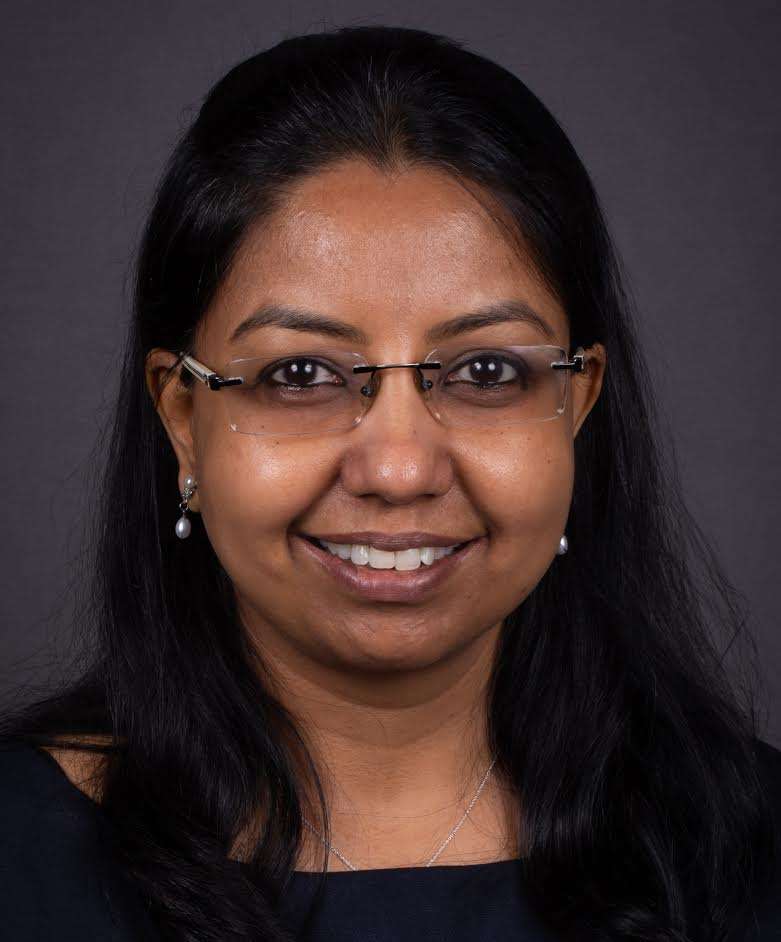
In the male-dominated semiconductor industry, Roopashree made it really big. She is global director of one of the core R&D teams – foundation IP & EDA – at Texas Instruments, and leads a team of over 150 across the world from her office in Bengaluru.
Right from school, she was in streams where women were a minority. In high school, she was among the 30% of girl students in the science section. When she moved to the University of Mysore for engineering, that number fell to 10%.
“The gender gap in STEM fields was bigger at that time. There were few good colleges to study engineering, and sometimes it’s a difficult decision for parents to send girls outside their hometown. My parents were very supportive,” says Roopashree, who is fondly called Roopa.
She joined Texas Instruments in 1996 as a memory design engineer right after college. She was fond of physics since school, and developed further interest in semiconductors at a time when it wasn’t a very popular field in India. One of her fondest memories at her first job is getting her own email address. “It was before Hotmail was launched, so you had to work at a company to get an email address. It was the coolest thing back then,” she laughs.
Five years into the job, Roopashree was promoted to project leader for I/O design. Less than a year later, she was pregnant with her first child. “The maternity leave period was just three months, and I felt it wasn’t enough.” So she took an extended break of six months. Incidentally, it was soon after her promotion.
It wasn’t an easy decision. “The tech industry is extremely fast-paced and constantly evolving, so taking even a small break comes with the inevitable fear of missing out,” Roopashree says. When her daughter was a year and a half old, she took another leave for four months. It took her a lot of courage to ask for another leave. “I’m glad I had a strong support system both at home and at the workplace,” she says.
When she was pregnant with her second child six years later, she took a year-long leave. She was managing a bigger team this time. She helped the firm hire a replacement for her and decided to look for a new role when she returned. It’s a testimony to Roopashree’s talent and perseverance that none of this impacted her career.
Today, she’s also the chairperson of TI’s Women’s Initiative Network (WIN) chapter, leading diversity initiatives. “I help sustain a work culture that supports new moms,” she says.
The first four-five years of a woman’s career are crucial, she says. “In these formative years, it’s important to work hard, take on challenging work, and leverage every opportunity you get. It helps you build confidence in yourself and also strengthens the equity that you have in the organisation. Our careers are not linear and most of us will go through some challenges at some point or the other, it is this early success and self confidence that helps you navigate future challenges,” Roopashree says.
The confidence from those early years, she says, helped her ramp up quickly after her maternity breaks. “When I returned from my second break, TI asked if I was open to working on a tough technical challenge and I readily agreed. Getting into the thick of things quickly, and being able to solve this technical problem, further strengthened my confidence,” she says.
Roopashree says you should not hesitate to ask for something you want. “You will be surprised how many times you hear `yes’! Worst case scenario, you won’t get it. But at least you tried,” she says.
By Gadgets Now Source Link






















